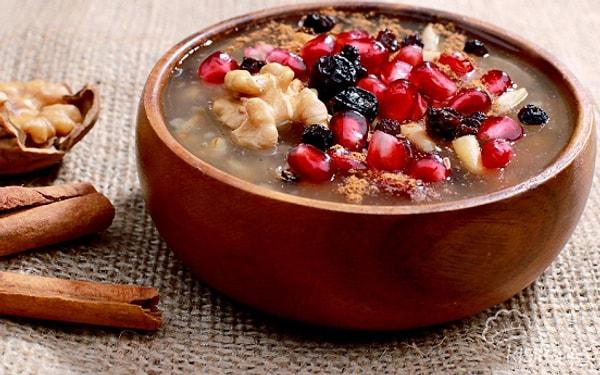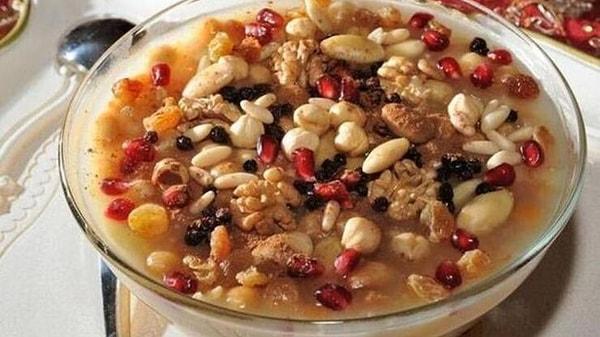Aşure: The Turkish Dessert with a Rich History
Aşure, also known as Noah's Pudding, is a traditional Turkish dessert with a history as rich and diverse as its flavors. This unique and delightful sweet treat holds deep cultural significance in Turkey and is celebrated annually as a symbol of unity and compassion. Its roots can be traced back thousands of years, making it one of the oldest desserts in the world.
Historical Origins

The origins of Aşure can be found in ancient Mesopotamia, an area that spans present-day Turkey, Iraq, and parts of Syria and Iran. According to legend, Aşure dates back to the time of Noah's Ark, which is mentioned in the biblical story of the Great Flood. As the tale goes, when the floodwaters receded, Noah's family and the surviving animals found themselves stranded on Mount Ararat in Eastern Turkey. With limited provisions on the ark, Noah's wife, known as Naame, ingeniously combined whatever ingredients were left to create a nourishing dessert. This concoction was named 'Aşure,' which means 'the tenth' in Turkish, as it was traditionally prepared on the tenth day of the Islamic month of Muharram.
Symbol of Unity

Aşure's association with Noah's Ark adds a profound symbolism to the dessert. Its ingredients are a medley of grains, fruits, nuts, and pulses, symbolizing the diversity and abundance of life. Each ingredient represents unity and togetherness, as they come together to create a harmonious blend of flavors. In Turkey, Aşure is often prepared and shared during the first month of the Islamic lunar calendar, which marks the Islamic New Year. The act of sharing Aşure with family, friends, and neighbors reflects the spirit of community, compassion, and generosity.
Ingredients

1 cup wheat
1 cup chickpeas
1 cup kidney beans
1 cup dried grapes (raisins)
1 cup dried figs
1 cup dried apricots
1 cup sugar
1 tea cup crushed walnuts
1 tea cup crushed hazelnuts
1 tea cup crushed pistachios
1 liter milk
1 teaspoon cinnamon
1 teaspoon ground cloves
How To Make It

Soak the wheat in water overnight. The next day, drain the water and put the wheat in a pot for boiling. Add enough water to cover it and cook until the wheat becomes tender.
Also, soak the chickpeas and kidney beans separately in water overnight. The next day, drain the water and boil them in separate pots.
Soak the dried grapes, dried figs, and dried apricots in hot water for about 10 minutes. Then, drain the water and chop them.
Transfer the cooked wheat, chickpeas, and kidney beans into a large pot. Add the chopped dried fruits on top.
Add the sugar to the pot and mix the ingredients. Then, pour in the milk and let it simmer on low heat.
Stir the mixture continuously until Aşure thickens. Enhance the flavor by adding cinnamon and ground cloves.
Once Aşure reaches a boiling point, turn off the heat and let it cool.
Divide the cooled Aşure into serving bowls.
Serve the Aşure by garnishing it with crushed walnuts, hazelnuts, and pistachios on top.
Beyond Religious Significance

During the Islamic month of Muharram, many households in Turkey come together to prepare Aşure as a family activity. Large batches are made to be shared with neighbors, friends, and those in need. Communities often organize Aşure festivals, where people gather to enjoy the dessert, fostering a sense of unity and solidarity among diverse groups.
While Aşure holds religious significance, it has also transcended its original context and is now celebrated by people of various backgrounds and beliefs. Its popularity has spread beyond Turkey's borders, reaching neighboring countries and communities across the world. The dessert's symbolism of unity, compassion, and coming together resonates with people from all walks of life, making it a cherished and inclusive treat.
Enjoy!
Keşfet ile ziyaret ettiğin tüm kategorileri tek akışta gör!


Send Comment